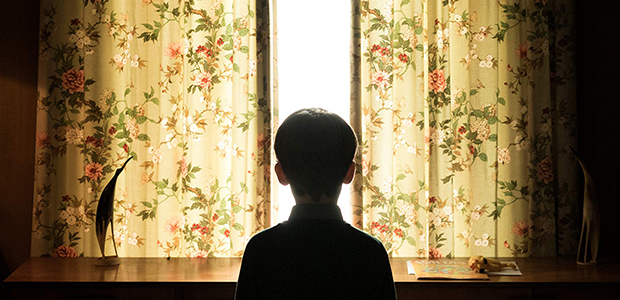
Nothing causes parental anxiety as much as the evil child horror subgenre. The Hole in Ground is the competent debut of director Lee Cronin who plays within the expected confines of the canon but never pushes hard enough to try and elevate or break away into the unexpected.
Ground has the usual assembly of ingredients that are waiting to be exploited by a scary movie plot. Recently separated/divorced mother brings her young son with her to live in a large, spooky house surrounded by a creepy forest that has a large, mysterious sinkhole smack dab in the centre. One day the son disappears and is found near the sinkhole. Nothing very unusual about it, except that the family bumps into a creepy old, seemingly senile woman who keeps mumbling mysterious nothings to herself until she locks eyes on the son and screams to the mother, “He’s not your son”. The mother gets suspicious and starts noticing strange, subtle changes in him, making her suspicious.
Is the boy possessed? Has he been replaced by an evil doppelganger? Is the mother simply paranoid? The film is at its best when it slowly builds towards exploring these ideas. We find out for instance that the mother has a scar on her forehead from a previous injury and requires sedative pills to calm her anxiety. Could she be imagining whatever we see is happening? The film has some fun with this, especially in one scene that involves arm wrestling and made the entire audience squirm. But Cronin and his co-writer Stephen Shields seem to half-explore this and every other idea in the film including the thought-provoking premise that parents think of their offspring as someone else when they grow to a certain age and start exhibiting changes that are unexpected. Even the films internal myth of mirrors and reflections showing the true self is undercooked and potentially underutilized.
Thematically Hole in the Ground offers little that is new and even its allegories are somewhat telegraphed (the sinkhole is essentially a substitute for hell) but the director deserves credit for creating a chilly milieu using form and technique featuring extreme close-ups of everyday objects – coffee foam in a mug, water circling the drain etc. to keep our attention from wavering and thinking how mundane everything else is.
Rating: 



